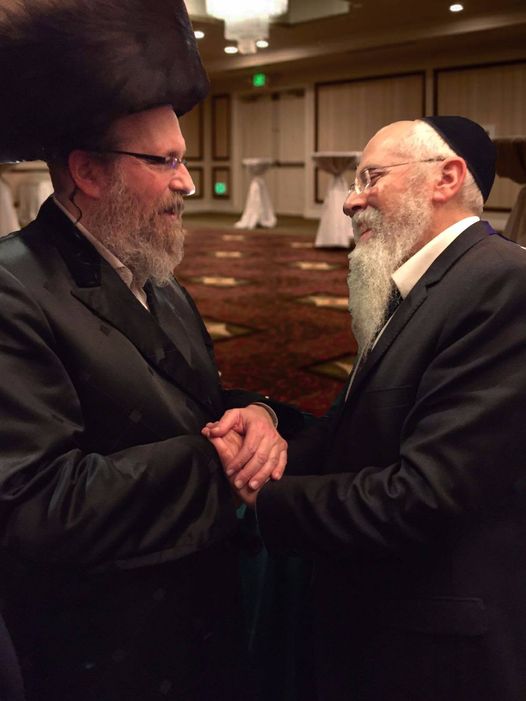
One of the many things Rav Aharon Bina, my Rosh yeshiva from Yeshivat Hakotel (now Netiv Aryeh), stressed to us was the importance of having emotion in our lives as Jews. The Rav would reprimand a student in the yeshiva who skipped-out on the moving and stirring Friday night oneg Shabbot (with the lights off) where we sang powerful slow songs of Rav Shlomo Carlebach and D’Vakus. “A boy without emotion,” Rav Bina said, “will marry out.”
This Shabbot, Parshat Shlach, we read about the very upsetting and disturbing story of the Miraglim. What went wrong? How did it happen that this group of leaders, “great men,” created a catastrophe so enormous that it sits at the root of all catastrophes. As we know, the Spies returned to Moshe and Bnai Yisrael on the 9th of Av. That “night of crying” was the first Tisha B’av of Jewish history and remains to this day the chief germ of all calamities that happened on Tisha B’av in the future .
The Spies’ report, after their return to the camp, can be divided into three parts:
- They begin by praising the Land of Israel and showing the nation the special fruits that they brought back with them.
- They then use the word “אפס” or “but” to introduce their report about the overpowering giants that they witnessed and how fortified the land is. At this point they mention all the nations that reside there including Amalek, Chiti, Yevusi, Emori and Canani. (At this point, Calev, who understood very keenly what the Miraglim were doing, attempts to interrupt and halt the destructive negativity with a dose of positivity.)
- Finally, the Miraglim conclude their speech by persuasively forcing their agenda that it is impossible to “go up” to that land.
Some commentators explain that while their negative but accurate report in section two of their comments can be excusable, their assessment and practical “advice” in part three crossed a line they dared not cross. When Moshe Rabbenu gave the MIraglim their mission never did he ask them to give their “expert opinion” on how to actualize the information.
Yehoshua and Calev have a few rounds of comments as well. The second round seems a bit strange. They say, “הארץ אשר עברנו בהלתו אותה טובה הארץ מאד מאד” “The land that we passed through, to spy it out – the Land is very, very good!” (Bamidbar 14:7) I find it strange that they make such a comment after the spies themselves have already praised the land. Furthermore, how is this any kind of a practical argument combating the Miraglim’s claims of the impossibility of conquering the land?
We must reach the root of the issue.
Our mission and challenge as Jews, in all that we do, is to first seek the truth on a cognitive level. Once the head has clarity, we must work to bring the knowledge of the mind into the heart. That head/heart connection is called דעת or “inward knowledge.” When knowledge becomes inward the “body” is guided to follow the lead of the head and heart.
However, when the truth in the head does not penetrate into the heart, there becomes a void and our emotional being is thirsting for material. At that point, our lower, animalistic self seizes the opportunity and sends negative “desires” to the heart. Emotions become conquered by fantasies and pleasures. Those negative sensations are sent to the head and we human beings are then capable of intellectually justifying the most horrible behavior.
The difference between the Miraglim’s connection to Eretz Yisrael and Yehoshua’s and Calev’s is important to recognize. The spies appreciated and verbalized the uniqueness of Eretz Yisrael. They would have never been able to say that the Land is “ארץ זבת חלב ודבש” (Flowing with milk and honey) if they didn’t. But their relationship and connection to the land stopped there. The intellectual recognition did not penetrate to an emotional bond. This vacancy left room for fears or alternative desires (depending on which commentary) to come in and dominate. Ultimately, the Miraglim justified why abandoning the will of God to conquer and settle the Land was the right course of action. It led to their utter demise and national disaster.
Yehoshua and Calev indeed cultivated that deep tie to the land. In their words, Eretz Yisrael is not just good, not just very good, rather it is “very, very good!” (Remarkably, you do not find such a phrase in the entire Torah about anything except for Eretz Yisrael.) They recognized the truth, felt it to the core of their being and were unwavering in their active dedication to the Divine value of settling the Land.
Their emotional connection to Eretz Yisrael and verbal expression of their love for the Land was the exact response needed to combat the lashon hara, cold intellectualism and evil plot of the Miraglim.
Unfortunately, in my twenty years as an educator, I have witnessed what happens when the emotional connection to Torah and Jewish observance dissipates. The “truth” and knowledge of a proper Jewish education are still there, but efforts to constantly translate that code into material the heart can understand wane. The heart is left orphaned allowing worldly pulls like money and excess leisure to grab at us; they fill the void of the heart.
Three thousand years after Sinai and seventeen hundred years after exile from Israel, while the Jewish mind was still very much alive, there was a great need in the Ashkenazi community for heartfelt inspiration. That inspiration came by way of the Baal Shem Tov and his students. In the 18th and 19th centuries teachings and avoda (worship) of Chassidut rejuvenated and revitalized the Jewish world. Joy, song, dance, moving stories and animated Torah reinvigorated broken Jews and lifeless communities.

Where would the religious community be today without the influence of the Baal Shem Tov?
Heartless!
Staying true to Divine will and Torah values is a life-time, “upstream” challenge. Imbuing the mind with Torah, feeding the heart with inspiration and bringing the body to perform Mitzvot and maasim tovim is a “total” and full-time mission. More than ever, in order to perpetuate the connection and passion that Yehoshua and Calev possessed, we need sources of inspiration that will reach our emotions.
In 2022, the Jewish people need leaders and educators like Rav Bina who understand the centrality and importance of an emotional connection in Jewish life and observance.
Shabbot Shalom
Shalom Tzvi


0 Comments